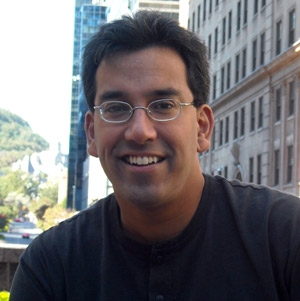A name you will frequently see on lists of top bloggers is the Montreal-based leadership coach, speaker and writer Tanveer Naseer; principal and founder of Tanveer Naseer Leadership. His work has been featured by major organizations and in a number of publications, including The Globe and Mail (the Toronto-based national newspaper of Canada), Fast Company and elsewhere.
He writes about many different topics on his blog, not surprising given his wide interests and scientific background. I asked him about those and other aspects of his life in the following Q&A:

1. With your work, family obligations, blogging and related writing, you are obviously a busy and productive person. How do you stay on top of the work-related reading you have to do? And in a related way, what is some of your favorite non-work-related reading?
I think this reflects something I’ve come to appreciate over the last few years. And that is that I’ve learned to be mindful of ensuring that I focus on what I need to get done, as opposed to letting those distractions we all face in a given day drive what I pay attention to and spend my time on.
The fact is that we all have the same number of hours in a day and I think what productive people do differently is that they’re very mindful of how they spend those hours in large part by minimizing the number of distractions they allow on their radar. It’s not always easy, but it does make a huge difference in terms of creating tangible progress instead of simply putting out fires.
As for my non-work-related reading, my favourite subjects are a bit varied – I enjoy reading non-fiction books in the field of Egyptology, as well as fiction books that range from science fiction, suspense thrillers that deal with hunting down serial killers, and humour novels that revolve around the relationships men have with their wives and their families. I guess this reflects my fascination with understanding humanity, of what makes us human and connects us to one another.
2. Can you explain more about your science background and how it helps your work on a daily basis? Is this something that is more or less always present in your mind as you go about your work?
Although I work with and give talks for business and corporate leaders, my background is in the field of pathology; specifically, the study of diseases. In fact, for a couple of years, I worked in a clinical setting at one of Montreal’s hospitals where we treated patients with infertility issues. While I don’t directly use my medical knowledge in my daily work, my scientific background has definitely proven invaluable with helping others to learn how to manage and operate in an environment where we have to continually challenge the status quo to remain competitive and relevant.
You see, science by its very nature is not a static discipline – while the fundamentals remain unchanged, as a scientist, you have to constantly reassess your understanding of things; that what you consider to be true today can be upturned at any given moment with a new discovery or understanding.
The other benefit I get from my scientific background is that drive to continually experiment in order to discover how I can do a better job addressing the needs and interests of those I serve.
3. My anecdotal sense is that Canada is a great place for knowledge workers and information professionals, especially writers. As a Canadian, is there something you can point to that leads to an innate drive, perspective or mindset that is particularly representative of your country?
One thing Canadians are proud of is our country’s multicultural heritage that was adopted as one of our country’s values back in the 1970s – well before the internet and social media created notions of a global village. And I think this openness and interest in connecting with others of different cultures, ethnicities, and creeds has created this unique environment where we have this drive to collaborate, share and understand those who are different from us, traits that are becoming increasingly important and much-valued in today’s interconnected, digital world.
